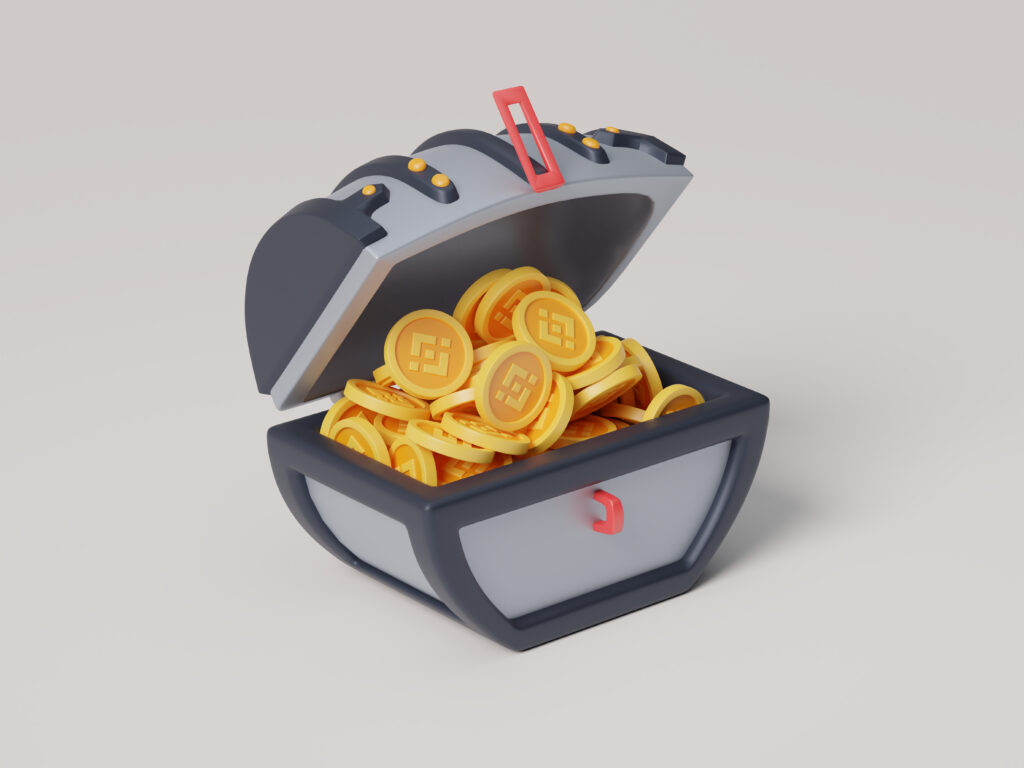Ethereum has shown us that it isn’t yet suited for mass adoption. At times of heavy use, the network becomes congested and transactions are costly and slow, processing only 20-30 transactions per second (TPS) with its current architecture. That’s why alternatives have shown up in the market – other smart contract-capable blockchains with higher TPS rates. The biggest one so far is Binance Smart Chain (BSC), developed by Binance. The development of the Binance Smart Chain was really fast. It was first announced in April 2020 and went live only five months later, on September 1. Most of its features are similar to those of Ethereum, but modified to achieve the required throughput. Barely a year after its launch, BNB, the BSC token, is already positioned as a contender to ETH in terms of market capitalization. It’s already surpassed Ethereum in levels of activity and has fostered the creation and migration of many DeFi protocols.
The development of the Binance Smart Chain was really fast. It was first announced in April 2020 and went live only five months later, on September 1. Most of its features are similar to those of Ethereum, but modified to achieve the required throughput. Barely a year after its launch, BNB, the BSC token, is already positioned as a contender to ETH in terms of market capitalization. It’s already surpassed Ethereum in levels of activity and has fostered the creation and migration of many DeFi protocols.
What is the Binance Smart Chain?
BSC is a smart version of another blockchain, the Binance Chain (BC). BC was created in 2019 to support the Binance DEX, the company’s proprietary decentralized exchange. It was in 2020, as DeFi protocols began exploding on the Ethereum blockchain, that developers of the Binance DEX noticed the limitations of BC. It could support tokens and trades, but couldn’t host smart contracts as effectively. That’s why Binance launched BSC, which does have smart contract support. It also has Ethereum Virtual Machine (EVM) compatibility, high transaction throughput and a block confirmation time of around three seconds. BSC can handle 55 to 60 TPS on average, and also has much lower fees than Ethereum. BSC’s EVM compatibility means that developers can easily integrate Ethereum-built protocols into BSC. Interfaces like MetaMask can also be adapted to support dapps and tokens created on the new chain. Which wallets are BSC-compatible? Binance itself recommends MetaMask, MathWallet, and Binance Chain Wallet for browser extensions. For those who prefer a mobile experience, Binance recommends MetaMask, MathWallet, Trust Wallet and SafePal. BSC protocols can use one of two token standards – BEP-20 and BEP-721. These are just like Ethereum’s ERC-20 and ERC-721 token standards, creating fungible and non-fungible tokens respectively. BSC was built as a parallel chain to BC, but it’s entirely independent. Tokens can be bridged between the two, and if BC fails or goes offline, BSC will keep working as usual.Try Undo Button
When was BSC created?
 The development of the Binance Smart Chain was really fast. It was first announced in April 2020 and went live only five months later, on September 1. Most of its features are similar to those of Ethereum, but modified to achieve the required throughput. Barely a year after its launch, BNB, the BSC token, is already positioned as a contender to ETH in terms of market capitalization. It’s already surpassed Ethereum in levels of activity and has fostered the creation and migration of many DeFi protocols.
The development of the Binance Smart Chain was really fast. It was first announced in April 2020 and went live only five months later, on September 1. Most of its features are similar to those of Ethereum, but modified to achieve the required throughput. Barely a year after its launch, BNB, the BSC token, is already positioned as a contender to ETH in terms of market capitalization. It’s already surpassed Ethereum in levels of activity and has fostered the creation and migration of many DeFi protocols.